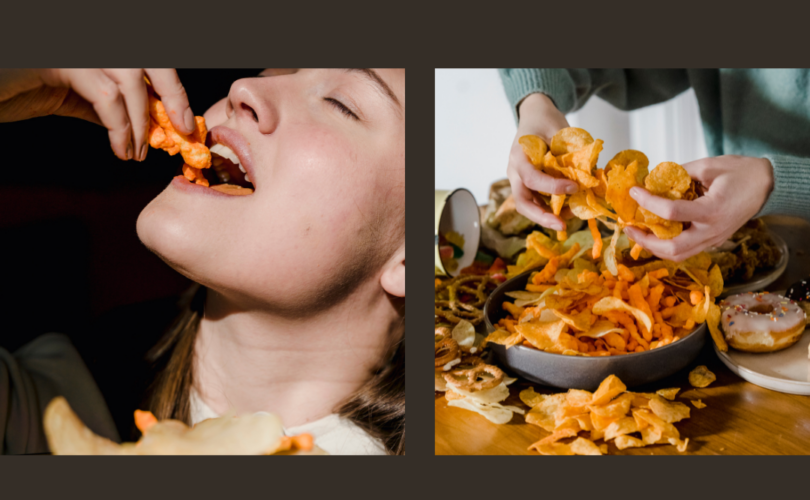Emotional eating is when people use food to cope with their emotions rather than to satisfy physical hunger. It’s a common response to stress, sadness, boredom, or other strong feelings.
Causes of Emotional Eating:
1. Stress: High levels of stress can trigger cravings for comfort foods.
2. Emotional Distress: Negative emotions like sadness, anger, or loneliness can lead to emotional eating.
3. Boredom: Eating out of boredom is a common trigger.
4. Dieting: Restrictive diets can lead to feelings of deprivation, causing people to overeat when they allow themselves to eat.
5. Lack of Awareness: Difficulty distinguishing between physical hunger and emotional hunger.
Symptoms of Emotional Eating:
1. Eating When Not Hungry: Eating in response to emotions rather than physical hunger.
2. Craving Specific Foods: Often craving sugary, fatty, or salty foods.
3. Eating Quickly: Eating rapidly without paying attention to the food.
4. Feeling Guilty: Experiencing guilt or shame after eating.
5. Overeating: Consuming large quantities of food in one sitting.
How to Stop Emotional Eating:
1. Identify Triggers: Recognize the emotions that lead to eating and find alternative coping mechanisms.
2. Keep a Food Diary: Track what you eat, when you eat, and how you feel to identify patterns.
3. Practice Mindful Eating: Pay attention to your hunger cues and eat slowly.
4. Find Healthy Alternatives: Engage in activities like exercise, hobbies, or talking to a friend instead of turning to food.
5. Seek Support: Talk to a therapist or join a support group to address underlying emotional issues.
6. Manage Stress: Use stress management techniques like meditation, yoga, or deep breathing exercises.
Remember, it’s okay to seek help if you’re struggling with emotional eating. You’re not alone, and there are resources available to support you. How do you usually cope with stress or negative emotions?

